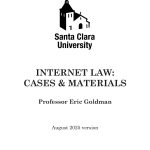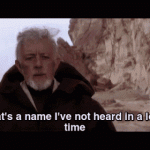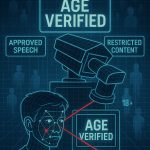
Google Can Assert a DMCA 512(d) Defense–Cengage v. Google (Catch-Up Post)
Textbook publishers are suing Google for its alleged role in facilitating what they consider to be mass piracy. In June 2025, the court partially denied Google’s motion to dismiss. Still remaining in the case are the plaintiffs’ contributory copyright infringement…

Third Circuit Rejects a Meta Pixels Case–Cole v. Quest Diagnostics
This is a Meta Pixels case. In a short nonprecedential opinion, the Third Circuit rejects the plaintiffs’ claims. CIPA. The court says that Facebook isn’t impermissibly “eavesdropping” when a user’s computer simultaneously and concurrently transmits information to the website they’re…

Announcing the 2025 Edition of My Internet Law Casebook
I’m pleased to announce the 2025 edition (16th edition) of my Internet Law casebook, Internet Law: Cases & Materials. The book is available in multiple formats: a PDF for $10, a Kindle ebook for $9.99, a softcover version for $20, and a hardcover version for $28….

Prof. Goldman’s Statement on the Supreme Court’s Demolition of the Internet in Free Speech Coalition v. Paxton
[Note: Greetings from Shanghai, where it’s almost 1 am and the Supreme Court has just demolished the Internet. I’m posting these remarks and then heading to bed, where I will curl up in a fetal position as I question everything…

Because the SAD Scheme Disregards Due Process, Errors Inevitably Ensue–Modlily v. Funlingo
This started out like every other SAD Scheme case. The plaintiff, a fast-fashion vendor operating under the brand Modlily, filed a complaint under seal against 20 defendants, got an ex parte TRO and asset freeze, and rolled to an unopposed…

Why I Emphatically Oppose Online Age Verification Mandates
I’ve posted a new paper, “The “Segregate-and-Suppress” Approach to Regulating Child Safety Online.” If that phrase sounds familiar, it’s because I’ve been referencing this paper on the blog for months. The paper details my extensive and multi-dimensional criticisms of mandatory…

Blogiversary: What Will This Blog Look Like in 10 Years? (Part 10 of 10)
This is my 10th and final blog post in my series celebrating my 20 year blogiversary. Sadly, the series (and maybe the blog) will end on a depressing note. You might want to grab some tissues before digging in. In…

Blogiversary: How Information Consumption Habits Have Changed Over the Years (Part 9 of 10)
I’m continuing my coverage of my 20 year blogiversary. I asked readers how their information consumption practices had changed in the past 20 years. Some of their responses: __ “I’m definitely online more. I didn’t even have a cell phone…

Blogiversary: Guest Bloggers of the Technology & Marketing Law Blog (Part 8 of 10)
I’m continuing my coverage of my 20 year blogiversary. When I started the blog, I didn’t contemplate having guest bloggers. At minimum, I never assumed I’d have enough traffic or exposure to make it an attractive publication venue for others….

Ethan Ackerman Reflects on the Blogiversary (Part 7 of 10)
[Continuing with the blog’s celebration of its 20 year blogiversary, I’m sharing this reflection from Ethan Ackerman.] In the early oughts (zeros?)–right around Y2K, the .com crash and 9/11–the ‘series of tubes’ that was the Internet was, while still a…
